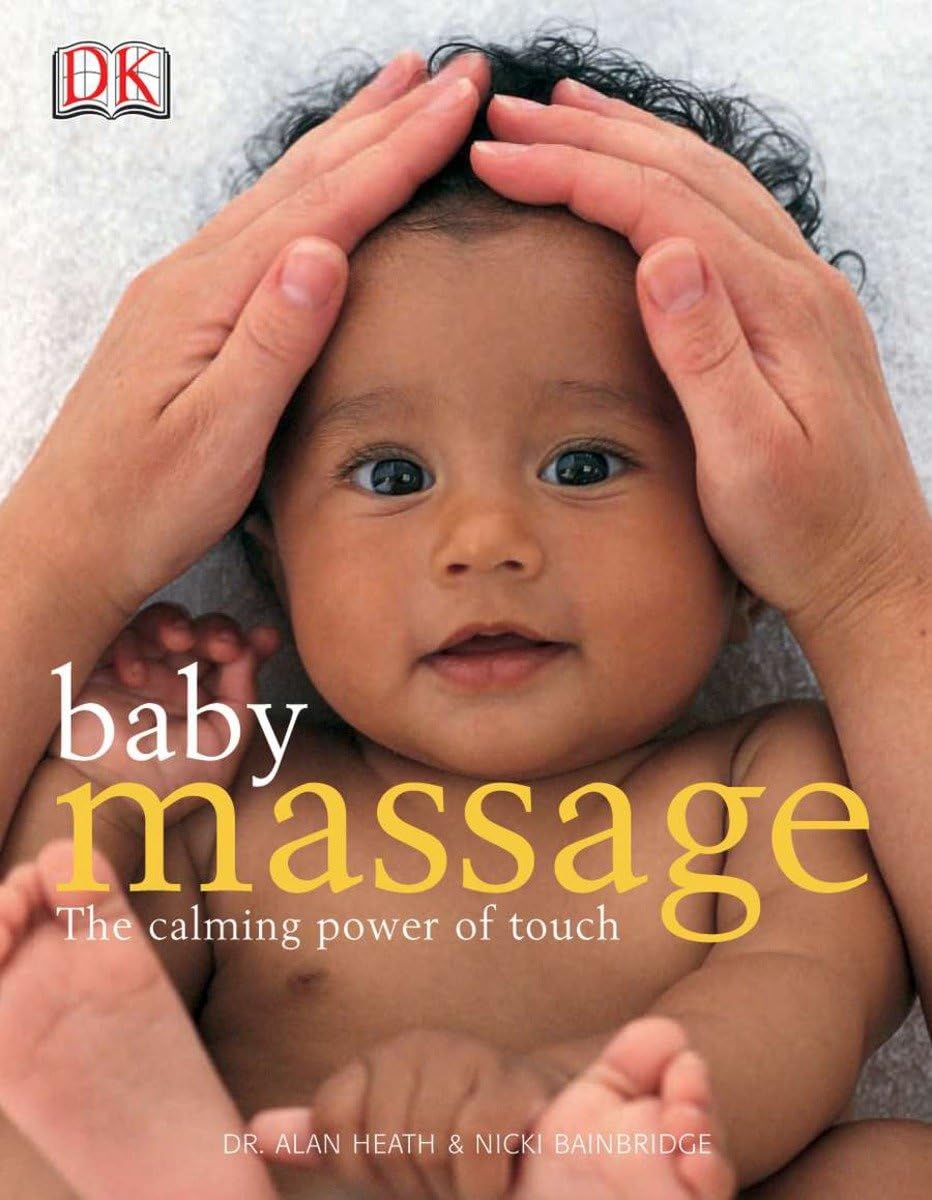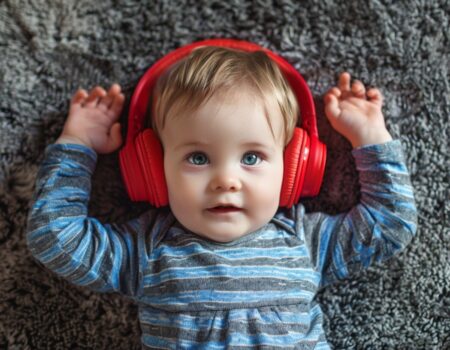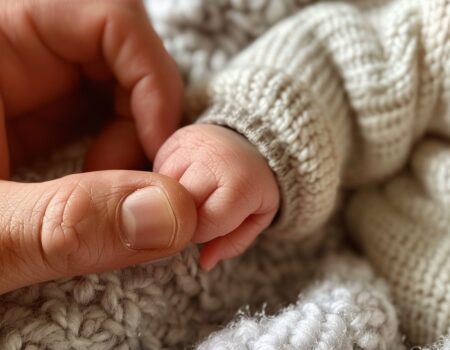Touch is the first sense to develop in utero, and long after birth, it remains a universal and fundamental language for babies. Far more than a simple gesture, touch and massage play a crucial role in the physical, emotional, and cognitive development of toddlers, from birth up to 4 years of age. It’s a powerful form of non-verbal communication that strengthens the parent-child bond and promotes deep well-being.
Touch: A primary form of communication
From the very first moments of life, skin-to-skin contact is instinctive and vital. It provides newborns with a sense of security and warmth, reminiscent of the uterine environment. This initial contact helps regulate their body temperature, heart rate, and breathing. Cuddles, caresses, and simply holding one’s baby are all gestures that convey love and comfort, essential for their emotional development.
For babies aged 0 to 4, touch is a constant source of information about the world around them. It is through touch that they explore textures, shapes, and temperatures. It is also a way for them to understand the limits of their own bodies, refine their body awareness, and develop their motor skills.

The numerous benefits of baby massage
Baby massage, although often perceived as a moment of relaxation, is in reality a multifaceted therapeutic tool. Practiced gently and attentively, it offers a range of benefits for infants and young children.
On a physical level:
- Relief from daily ailments: Massage can help relieve colic, gas, constipation, and teething pain. Specific movements on the abdomen, for example, can facilitate digestion and reduce discomfort.
- Improved sleep: Massaged babies are often more relaxed, which promotes faster falling asleep and deeper, longer sleep. The ritual of massage before bedtime can become a signal to the body that it’s time to rest.
- Stimulation of blood and lymphatic circulation: Gentle massage helps improve circulation, which is beneficial for the immune system and the child’s overall health.
- Development of body awareness and motor skills: By massaging different parts of the baby’s body, parents help them become aware of their limbs, joints, and develop better coordination. It can also improve muscle flexibility.
- Strengthening the immune system: Studies suggest that regular massage can help strengthen babies’ immune defenses, potentially making them less susceptible to illnesses.
On an emotional and psychological level:
- Strengthening the attachment bond: Massage is a privileged moment of intense connection between parent and child. Exchanges of glances, smiles, and physical contact create a bubble of tenderness that nurtures the bond of attachment and mutual trust.
- Reduction of stress and anxiety: The gentle, rhythmic touch of massage has a calming effect on babies’ nervous systems, reducing stress hormones like cortisol and promoting the production of oxytocin, the well-being and attachment hormone.
- Improvement of self-esteem and inner security: A baby who regularly receives physical signs of affection feels loved and valued, which helps develop good self-esteem and a sense of inner security.
- Development of non-verbal communication: Massage is a form of dialogue without words. Parents learn to decipher their baby’s signals, while the baby learns to trust and express their needs.
On a cognitive and sensory level:
- Sensory stimulation: Massage offers a wealth of tactile sensations, as well as visual and auditory ones (through the parent’s soothing voice). This global stimulation is essential for the baby’s brain development.
- Improved concentration: A relaxed and secure baby is more able to explore their environment and focus on new experiences.
- Facilitation of learning: By promoting a state of well-being, massage creates fertile ground for learning and discovery.
Beyond massage: The continuing importance of touch for older children
Even after early childhood (2-4 years), touch remains crucial. Cuddles, games involving physical contact (like gentle wrestling with dad), and caresses are still essential for a child’s emotional development. These interactions continue to strengthen family bonds, provide a sense of security, and foster emotional expression. Touch helps children manage their emotions, calm down when upset, and feel unconditionally loved.
In summary, touch and massage are not just techniques, but essential foundations for the well-being and harmonious development of babies and young children. They offer a language of love and security, shaping the path to healthy and balanced growth.












No Comment! Be the first one.